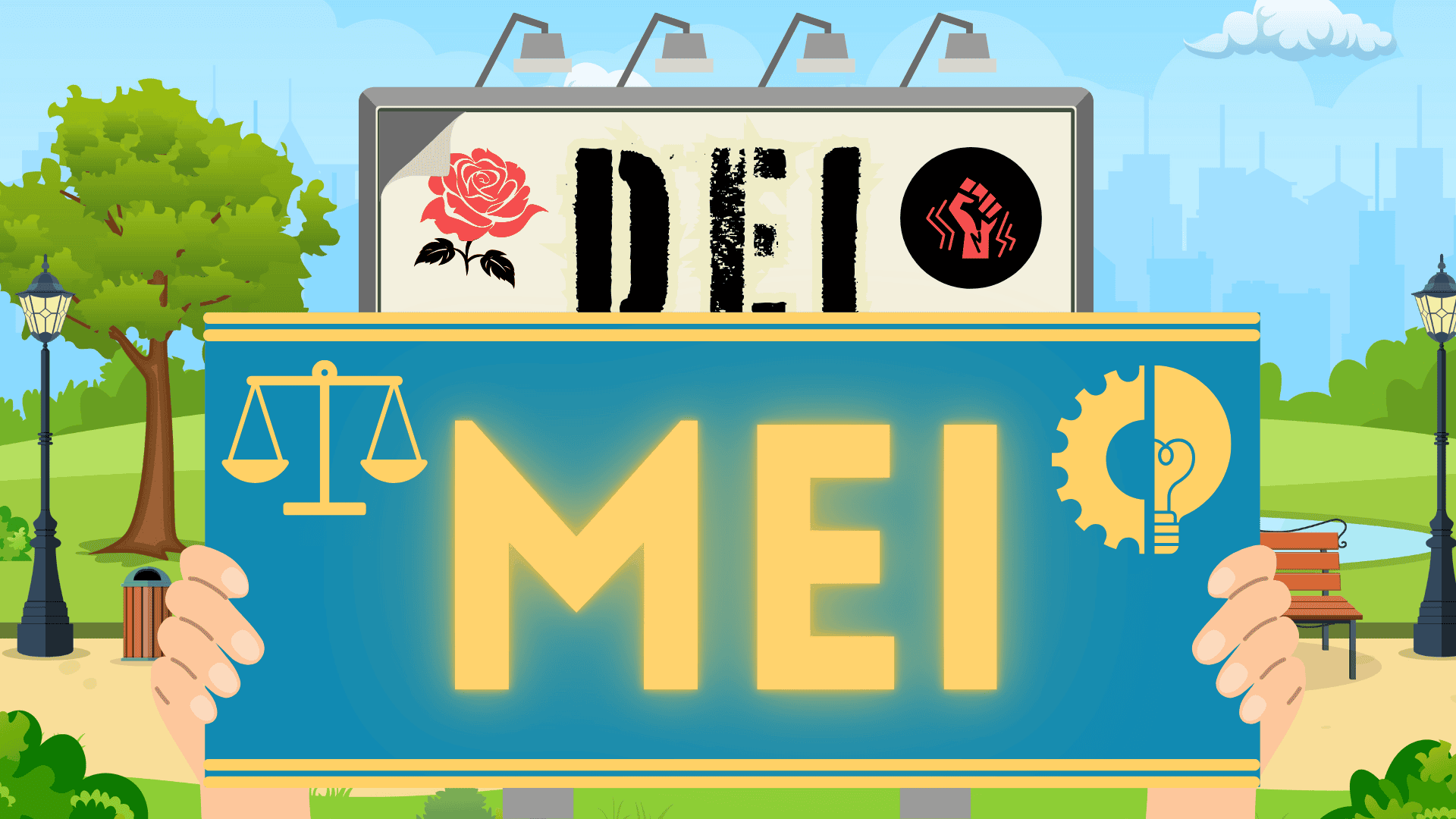


The late British novelist and author George Orwell understood how language could be twisted to invert its meaning and camouflage intentions.
“The great enemy of clear language is insincerity. When there is a gap between one’s real and one’s declared aims, one turns as it were instinctively to long words and exhausted idioms, like a cuttlefish spurting out ink.”
Let’s be clear: Diversity, Equity, and Inclusion (DEI), as applied, means just the opposite of the simple definitions of these words. It is a clever way to attack the very notion of meritocracy and excellence at its core. Who gets to define what is diverse, equitable, and inclusive? And what do those have to do with personal, professional, or academic achievement? Or, as Democratic presidential candidate Kamala Harris has said, “There’s a big difference between equality and equity. Equitable treatment means we all end up at the same place.”
Well, that’s easy for her to say. Alas, most of us won’t end up as a major party nominee for President without a single vote cast.
The insincerity of DEI is probably not news to most conservatives. The question is, what is to be done about it?
DEI must be removed from Idaho’s public institutions, root and branch. The fight has been ongoing for several years. The challenge is that the proponents are chameleons, so merely attacking the nomenclature is insufficient. Another example is the U.S. Military Academy at West Point, which recently renamed its DEI office to the Office of Engagement and Retention. But the mission sure smells like the old DEI.
Mission: The Office of Engagement and Retention synchronizes and leverages academy engagement and retention efforts that focus on attracting, hiring, retaining, and developing an inclusive and cohesive staff, faculty, and Corps of Cadets; and engages West Point organizations, DoD, Army partners, and the external community in support of West Point’s mission to build, educate, train, and inspire leaders of character serving in our culturally diverse Army.
Idaho’s battle with DEI has fallen short in part because opponents have not found the right tools to deploy and also because some members of the establishment are heavily invested in this pernicious ideology. And again, there is that problem with the nomenclature.
Let’s examine several attempts by Idaho’s Legislature to rein in DEI and other related ideologies:
And yet, despite this list of attempts to address the issue, the DEI infrastructure has continued to grow and flourish at Idaho’s Universities, as we have documented. The DEI infrastructure and staff are now bigger than ever.
So, if all these attempts by the Legislature haven’t worked, what will work? Senate Bill 1357, which was not given a hearing during the 2024 legislative session, was expressly drafted to define and defund DEI as it exists today on Idaho’s higher education campuses.
In the end, one point should be clear: the Legislature has the upper hand in the appropriation process. If the universities persist in promoting DEI, their funding should be cut until they stop. The Legislature needs to exert its authority and do it clearly.
The DEI programs at Idaho’s universities have been operating for over nine years, arguably beginning with hiring a Chief Diversity Officer at the University of Idaho in 2015. It is time for the practices of universities to return to what higher education used to be: institutions promoting and encouraging merit, excellence, and the intelligence of students working to succeed in higher education and, indeed, in life.

